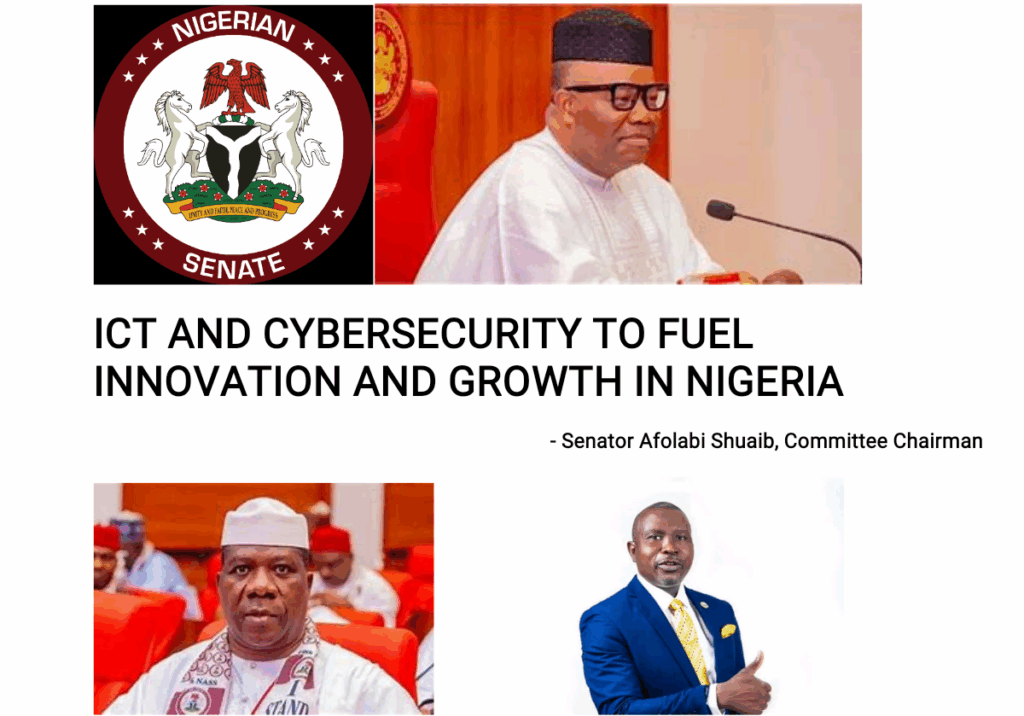
The chairman of the Committee, Senator Afolabi Shuaib, who convened the high-level interactive session, said there is urgent need for the government, regulators and industry players to act towards making the proposed national security summit a success.
He welcomed stakeholders on ICT and Cybersecurity at the interactive session with key players in the communications sector as part of efforts to tackle rising insecurity in the country, as a precursor to the forthcoming National Security Summit being organized by the Senate, focused on harnessing Nigeria’s communications infrastructure and digital systems to combat crime and enhance national security.
Participants included lawmakers, telecom operators, cybersecurity experts, and representatives from major regulatory bodies such as the National Information Technology Development Agency (NITDA), Nigerian Communications Commission (NCC), and the National Broadcasting Commission (NBC).
Declaring the session open, Senate Leader Opeyemi Bamidele stressed the urgent need to strengthen and safeguard the nation’s digital assets as a critical component of national security.
“If we do not fix our digital architecture,” Barrister Bamidele said, “we will be building a national future on quicksand.”
“Technology has become a double-edged sword,” Senator Shuaib noted. “While it fuels innovation and growth, it is also enabling crime, extortion, harassment, and terrorism. If we don’t act now, we’ll be chasing shadows at the National Security Summit.”
Some senators who spoke at the session decried a situation where “kidnappers are collecting ransom using our telecom networks.
“Someone with 10MB of data can destroy reputations and lives – and they do it with impunity.”
Lawmakers also called out the absence of global tech giants from Nigeria’s regulatory landscape, with
Senator Ned Nwoko queried why companies like Meta are not compelled to establish a local presence in the country.
“Could this improve digital law enforcement and accountability?” he asked.
Lawmakers observed that despite Nigeria’s digital economy now accounting for nearly 20 per cent of its GDP, the infrastructure protecting that ecosystem is dangerously underdeveloped.
Their concerns ranged from flawed SIM registration processes to “number churning” – the practice of reactivating old lines that still have access to banking services.
The Director of Technical Standards and Network Integrity at the Nigerian Communications Commission (NCC), Edoyemi Ogoh, acknowledged the system’s shortcomings.
“Yes, every SIM is linked to an identity,” he said. “But when the user isn’t the owner, it becomes a liability. Many Nigerians don’t know they can be held responsible for crimes committed with SIMs registered in their name.”
He also announced new safeguards, including a notification platform to combat recycled number fraud and improved caller ID authentication—alongside efforts to reduce disruptions caused by fiber cuts and unauthorized tower shutdowns.
NITDA’s Director-General, Kashifu Inuwa Abdullahi, said there is need to embed cybersecurity into the nation’s digital DNA.
“Cybersecurity today is not just about firewalls,” Abdullahi said. “It’s about data sovereignty, AI ethics, social media manipulation, and digital influence. We are embedding trust into the architecture of our public systems.”
He pointed to concrete progress, including updated codes of practice for global tech firms, legal action on data privacy violations like the recent fine on Meta, and a digital public infrastructure blueprint that mandates architectural planning for all government IT projects with a focus on national data residency.
Lawmakers however called for a wholistic government and society response as well as a harmonized effort across NITDA, NCC, NBC, and national security agencies to checkmate the rising spate of insecurity.